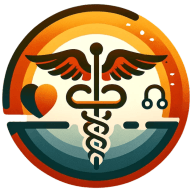How Can Clear Communication Be Ensured Among Diverse Healthcare Teams?
In the quest for excellence in patient care, clear communication within healthcare teams is paramount, as emphasized by a certified prosthetist orthotist. Alongside expert strategies, we've gathered additional answers that span from adopting standardized medical terminologies to holding regular interdisciplinary meetings. These insights, including those from non-experts, provide a spectrum of methods to enhance team cohesion and effectiveness.
- Develop Clear Order Forms
- Institute Daily Morning Huddles
- Adopt Standardized Medical Terminologies
- Mandate Cultural Competence Training
- Utilize Multilingual Digital Translation Tools
- Implement a Universal Reporting System
- Hold Regular Interdisciplinary Meetings
Develop Clear Order Forms
Clear communication is extremely important, whether it is for direct patient care or the provision of a service or device. Currently, I am working as the Clinical Manager for a manufacturer of custom lower-limb devices. My job is to help interpret what is being ordered and call with questions if clarification is needed, so we can provide the best product for the patients. We receive orders from a variety of disciplines, like podiatrists, physical therapists, orthotists, athletic trainers, and more. We have developed order forms that relay the information needed to manufacture an appropriate orthosis for a patient. I always try to encourage additional information to be included when special instructions are requested.
Filling these forms out completely helps to ensure that the device we fabricate provides the best outcomes for the patient. In our diverse culture, English is the second language for many employees, so it can be especially important to keep the instructions concise and easy to follow to be sure the information gets across. It is helpful if written instructions are done without using terms that are specific to any given discipline or region.
Daily, I talk with those ordering the orthoses and the fabrication teams. I talk to the providers to get a clearer understanding of the situation we are fabricating the orthosis for. I update the order form with bullet points of instructions. Illustrations can help the technicians understand what needs to be done. I am always available to answer questions, and that is important for clear communication and successful outcomes.
Institute Daily Morning Huddles
To improve communication within our diverse healthcare team, we've instituted daily morning huddles. These brief meetings allow for the exchange of crucial information and encourage open dialogue among all providers and team members. This practice has not only unified our team but also significantly enhanced patient care by ensuring everyone is on the same page, avoiding any hiccups throughout the day. Emphasizing inclusivity and valuing every team member's contribution are key to our approach.

Adopt Standardized Medical Terminologies
In the realm of healthcare, impeccable clarity in communication can be attained by adhering to standardized medical terminologies. This approach fosters an environment where medical jargon is simplified into a universally recognized language, precluding misinterpretation among professionals with varying educational and cultural backgrounds. By introducing a common vocabulary for diagnoses, procedures, and outcomes, misunderstandings are minimized, and patient care becomes more seamless.
Standardization ensures that all team members—be they doctors, nurses, or administrative staff—are on the same page, therefore mitigating errors. Consider advocating for the use of standardized terminologies within your healthcare setting to enhance team clarity and efficiency.
Mandate Cultural Competence Training
To ensure clear communication across culturally diverse healthcare teams, mandatory cultural competence training is pivotal. Such educational programs equip healthcare providers with the necessary skills to appreciate and handle the linguistic and cultural subtleties that come with a diverse workplace. Training sessions could cover topics like cultural sensitivities, non-verbal communication cues, and effective strategies for bridging cultural divides.
When team members better understand the cultural contexts of their colleagues and patients, the likelihood of miscommunication diminishes. Healthcare administrators should champion the integration of cultural competence training into ongoing professional development curriculums.
Utilize Multilingual Digital Translation Tools
Clear communication in diverse healthcare settings can be greatly enhanced by using multilingual digital translation tools. These sophisticated technologies are designed to facilitate real-time understanding among team members who might not share a first language, thus bridging the language gap. Translation tools help ensure that patient records, treatment plans, and staff directives are accurately conveyed and fully comprehended.
Furthermore, the use of such digital aids in patient interaction may lead to better health outcomes due to improved understanding. Encourage your institution to invest in robust multilingual translation technology to support its diverse team and clientele.
Implement a Universal Reporting System
A key to maintaining clear communication within diverse healthcare teams is the adoption of a universal reporting system. Such a system can democratize access to patient information, making it easier for every team member to track progress and changes in patient status, regardless of their department or specialty. A standardized reporting format helps in reducing miscommunication while ensuring that the whole team is informed and aligned in their approach to patient care.
This can lead to more efficient team collaboration and better patient outcomes. Urge your healthcare establishment to implement a universal reporting system to foster more coherent and effective team communication.
Hold Regular Interdisciplinary Meetings
Establishing regular interdisciplinary meetings can be an effective strategy to ensure clear communication among diverse healthcare teams. These meetings provide a dedicated space for healthcare professionals to share insights, discuss complex cases, and strategize on care delivery collectively. By creating a routine forum for open dialogue, healthcare providers can preempt potential misunderstandings and clarify any ambiguities that may arise in their collaborative efforts.
Regular, structured interactions encourage a culture of transparency and continuous learning among the staff. Initiate the practice of holding routine interdisciplinary meetings in your healthcare organization to bolster communication and teamwork.
